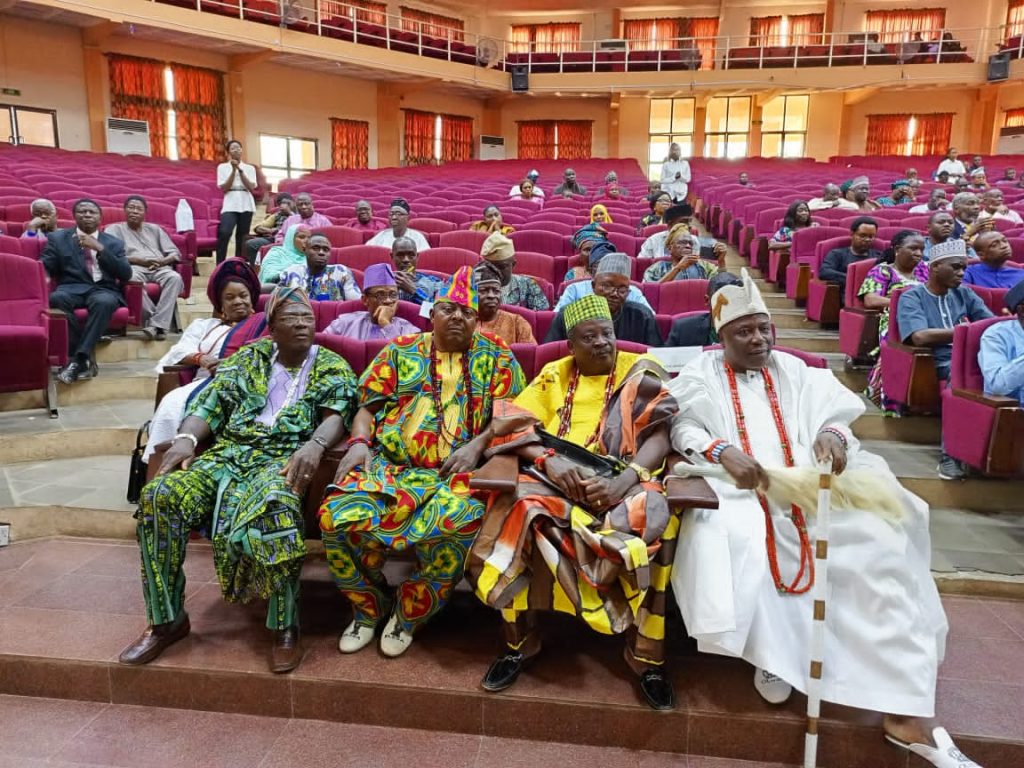In a thought-provoking inaugural lecture, Professor Opeyemi Eyitayo Ayinde from the Department of Agricultural Economics and Farm Management at the University of Ilorin addressed the critical issue of gender inclusivity in agricultural innovation and risk management.
The lecture, titled “The Risk of Not Taking Risk in Agricultural Innovation and Gender Inclusivity,” emphasized the indispensable role of women in agriculture and the need for their active involvement in decision-making processes.
Professor Ayinde highlighted existing gender disparities in accessing crucial resources such as land, credit, and agricultural inputs and stressed the importance of recognizing and addressing these inequalities.
One of the key insights from the lecture was the significant contribution of women to food production in developing countries, particularly in Africa. Despite their pivotal role, women often face underestimation and neglect in terms of technological innovation, policies, and strategies within the agricultural sector.
The gender gap in agricultural productivity was identified as a major hindrance to the sector’s advancement. Professor Ayinde emphasized the need for inclusive agricultural research that considers the distinct roles and preferences of both male and female farmers. Efforts should be directed towards empowering women, improving their access to resources, and involving them in decision-making processes.
The lecture also delved into the multifaceted concerns surrounding agricultural risk and its impact on production and growth. Professor Ayinde, with over 22 years of research experience, shared findings on the risk behavior of farmers, gender inclusivity, and effective risk management strategies, aiming to contribute to the improvement of livelihoods and the overall productivity of households.
The lecture likewise delved deeper into the various types of risks associated with agriculture, shedding light on their implications and the need for effective management strategies.
Highlighting production risk, Professor Ayinde emphasized the impact of factors affecting the quantity and quality of agricultural output. Adverse climatic conditions, pest infestations, and soil-related challenges pose significant threats to farmers, especially those practicing rain-fed agriculture in Africa. Drought, in particular, stands out as a devastating challenge, underscoring the vulnerability of crop production.
Market risk often synonymous with price risk was explored in the lecture, revealing its intricate connection with production risk. Ayinde’s research indicated that market fluctuations, consumer preferences influenced by prices, seasons, and location can significantly impact agricultural growth. The complexities of market risk necessitate vigilant management on both input and output fronts.
Highlighting the exposure of farmers to potential financial losses due to uncertainties in income, expenses, and market conditions, Professor Ayinde stressed the importance of effectively managing production and marketing risks to maintain stable cash flows and secure loans crucial for farmers’ operations.
Continuing with her recommendations, Professor Ayinde advocated for tailored financial products and increased access to agricultural credit, especially for small-scale farmers relying on personal savings. Introducing innovative financial solutions, such as index-based insurance, can enhance farmers’ ability to manage financial risks and invest in their operations, fostering increased agricultural productivity and resilience to market fluctuations.


She emphasized the importance of enhancing farmers’ access to information and providing training and education programs. This recommendation underscores the need for awareness and understanding of various risks in agriculture. Equipping farmers with knowledge empowers them to make informed decisions, implement risk management strategies, and adopt best practices and innovative technologies.
She encouraged farmers to diversify their income sources and crops as a crucial risk management strategy. This approach helps reduce the impact of individual risk factors, contributing to overall resilience.
While recognizing the significance of social networks and groups in facilitating the adoption of agricultural innovations, she urged that efforts should be directed at establishing and supporting social groups connecting farmers with researchers to enhance the dissemination of crucial information and accelerate innovation adoption.
Promote gender-inclusive agricultural research for equitable access to resources and technology. Recognizing the distinct roles and preferences of male and female farmers and involving both genders in the selection and development of agricultural innovations are crucial steps towards achieving self-sufficiency in crop production. Empowering women in agriculture and enhancing their access to resources and decision-making processes are essential.
The lecture concluded with additional recommendations focusing on enhancing risk awareness, encouraging the adoption of climate-resilient crop varieties, promoting environmentally-friendly technologies, implementing policies for inflation mitigation through agricultural surplus management, and emphasizing the importance of effective governance and government support in risk management within the agricultural sector.
Professor Ayinde’s recommendations serve as a comprehensive guide for fostering sustainable growth and resilience in Nigeria’s agricultural landscape.
